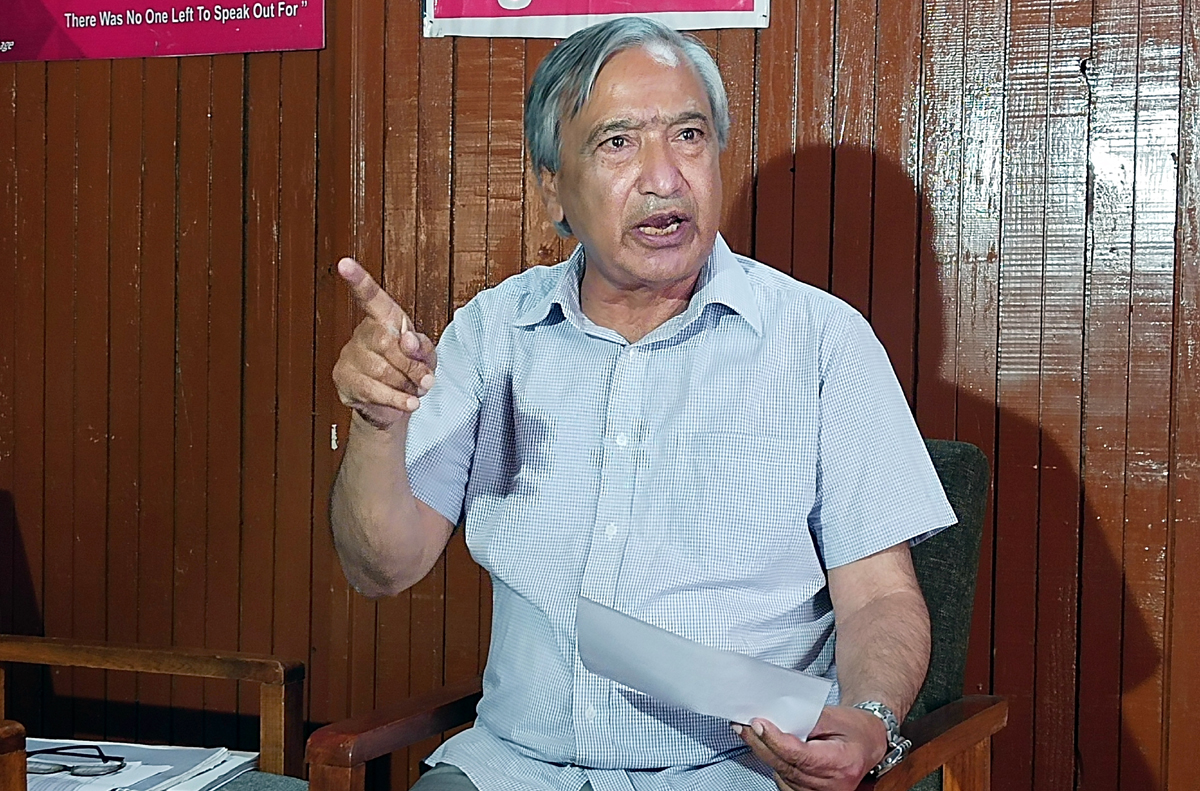
Excelsior Correspondent
SRINAGAR, Aug 22: The CPI-M leader Mohammed Yusuf Tarigami today said that he has approached the Supreme Court to challenge October order issued by the Union Home Ministry that permits individuals from across the country to purchase land, including land designated for agricultural purposes.
He mentioned that, in his writ petition, he has sought the intervention of the apex court and a stay on the order until his petition is heard. He said that his petition, filed under Article 32 (which addresses violations of fundamental rights), argues that the October notification is “illegal.”
“This is because it was issued in accordance with the August 2019 reorganization of Jammu and Kashmir, which has been challenged by several individuals, and the top court is aware of this matter,” he said.
He said that the petition also highlighted that the Home Ministry has made amendments to sections of the JK Land Revenue Act of 1996, which pertains to the management of agricultural land, and the JK Development Act of 1970, which deals with zonal development plans for determining land use, encompassing areas such as buildings, roads, housing, recreation, industry, business, markets, schools, hospitals, as well as public and private open spaces.
Click here to watch video
Pointing out the amendments in these Acts, he informed that the petition noted that while the new laws prohibit the sale of agricultural land to non-agriculturists, they also “authorise the Government or an officer appointed by it to grant permission to an agriculturist to alienate the land to a non-agriculturist by way of sale, gift, exchange, or mortgage, or for such agreement on such conditions as may be prescribed.”
Tarigami argued that decisions regarding changes in land use should not be solely at the discretion of bureaucracy, particularly at the lower levels of district collectors. He emphasised the need to reintroduce the checks and balances that were available in the repealed laws.
The four-time MLA from Kulgam warned that these amendments would “significantly alter the land use pattern and jeopardise the food security of Jammu and Kashmir.”
He explained that the previous State Government’s land laws were aimed at safeguarding extensive agricultural land that played a vital role in sustaining the people of Jammu and Kashmir by preventing commercialization. “The petition highlighted that the respondents (the Ministry of Home Affairs) had not taken this critical aspect into consideration when issuing the notification,” he said.
He said in a 111-page notification provided in both Hindi and English, the Home Ministry introduced numerous changes to the land laws, with the most notable amendment being in the Jammu and Kashmir Development Act, which deals with the disposal of land, “The Centre removed the phrase “permanent resident of the state” from Section 17 of the law,” he said.
He said prior to the repeal of Article 370 and Article 35-A in August of last year, non-residents were prohibited from acquiring any immovable property in Jammu and Kashmir. “The recent changes have opened the door for non-residents to purchase land in the union territory. These notifications have sparked strong reactions from mainstream political parties in Jammu and Kashmir, who have characterised the move as an attempt by the Centre to put Jammu and Kashmir up for sale,” he said.

